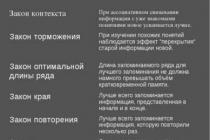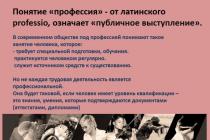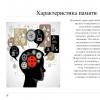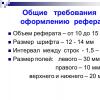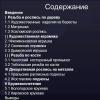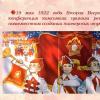What is the difference between the concepts of "ethics", "morality", "morality"? Is such a task of ethics as "teaching morality" feasible? Can morality be taught?
2 Comment on the words of the Russian philosopher Vl. Solovyov. What important condition for the upbringing of decency is he talking about: “Moral philosophy is nothing more than a systematic indicator of the right path of life wanderings for people and peoples ... But no exposition of moral norms, that is, the conditions for achieving the true goal, can who set himself not this, but a completely different goal”?
§1 What role, according to the German philosopher I.Kant, does ethical knowledge play in the upbringing of a personality? Do you agree with him? "Humanity is the ability to participate in the fate of other people. Inhumanity means not to take part in the fate of others. Why are some sciences called gumanioria? (i.e. humanitarian - ed.) Because they make a person more refined. the student of them, even if he has not reached great learning, retains a certain refinement and softness. For the sciences, once they have subdued the soul, give it softness, which is preserved in the future. Therefore, the merchant evaluates each according to his money; sciences, evaluates people according to other criteria.
L.N. Tolstoy argued that "it only seems to mankind that it is engaged in trade, wars, arts, politics, etc. In fact, the only thing it does is understand the moral laws by which it lives." Give examples that support the thought of the great writer.
Is every person who knows the norms of morality a model of morality?
Morality is necessary for society, but what does it give a person?
Prince She said to Confucius: "There was a straightforward man in my village. His father stole a ram, and he denounced his father. Confucius replied: "In my village, straight people are different from yours.." Continue
thought of the great moralist. What does honesty mean, in his opinion?
Compare the statements of ancient philosophers, name both the authors and the ethical schools to which they belong:
a) I would prefer madness to pleasure;
b) pleasure is good, even if it is generated by the most imaginative things;
c) no pleasure is evil in itself, but the means that produce some pleasures bring anxieties many times greater than the pleasures.
Which of the following philosophers is the author of the first special labor on ethics: a) Epicurus, b) Socrates, c) Protagoras, d) Aristotle, e) Seneca?
The Epicureans have ataraxia, the Cynics have asceticism, the Stoics have ?
What is the name of the ancient philosopher, about whom A.S. Pushkin writes. What is the name of the ethical school to which he belonged? Why does the way of life preached by him, according to the poet, not give happiness? "Meanwhile, barking menacingly at the dear, / An evil cynic, despising bliss, / One deprived of all joys, / Breathed, excommunicated from the world. / But wandering with an empty barrel, / Following blind wisdom, / A simple eccentric was blinded; / And scooping up water with his hand, / He could not scoop up happiness. 6 Which of the thinkers of the past owns the words: "Two things fill the soul with ever newer and stronger wonder and reverence, the more often and longer we think about them - this is the starry sky above me and the moral law in me? a) to Hegel, b) to Nietzsche , c) Cicero, d) Kant, e) Holbach.
How do you understand the meaning of Hegel's distinction between the concepts of "morality" and "morality"?
Compare the points of view of philosophers. Which one do you prefer and why? A. Schopenhauer wrote that compassion “is an amazing and, moreover, mysterious process. This is truly a great mystery of ethics, its primary phenomenon and boundary pillar... we see that in this process the barrier will be removed, which, from the point of view of the natural light of reason, completely separates one being from another, and what is not I - in some way becomes I. . And F. Nietzsche characterized compassion as a "depressive contagious instinct", which paralyzes the instincts aimed at increasing the value of life.
3rd lesson
C Determine the ethical teachings, the representatives of which are the authors of the above statements. Which of them do you prefer?
"... if morals are created by the history of the development of a given society, then conscience, as I will try to prove, has its origin much deeper in the consciousness of equality, which physiologically develops in man, as in all sociable animals" (P. Kropotkin).
B. "Conscience, which reigns in the human spirit and over the human spirit, as a kind of higher power, could be twisted into its nature only by those who created it and intended it to fulfill moral tasks. Therefore, the religious consciousness of mankind rightly saw and still sees in conscience the expression of will God's" (A. Gusev).
“A republican has a different conscience than a royalist, a possessor has a different conscience than a have-not, a thinker has a different conscience than one who is not used to thinking. The conscience of the privileged is, after all, a privileged conscience” (K. Marx).
2 What is the name of the strict prohibition that was formed at the earliest stages of the development of morality: a) totem; b) ritual; c) taboo; d) custom; e) fetish?
§1 Why is the well-known saying: "And so in everything, as you want people to do to you, do to them" - was called the "golden rule" of morality? Do you consider it possible to apply it in relations with others?
4 Follow the evolution of the "respect elders" norm from patriarchal mores to the present day. Show the features of its understanding at each historical stage. What is this norm today?
5| How do the concepts of "folk morality", "traditional morality", "patriarchal morality" correlate?
Name the customs of your people known to you. Is it possible to distinguish among them good and bad? What is the criterion for such an assessment?
How do you feel about the idea of Confucius that "if they honor the dead, remember their ancestors, then virtue will again become stronger among the people"? In your opinion, is it relevant to modern morality?
C Compare the traditions of Russian and Adyghe hospitality, try to identify the common and special in the traditions and rules of receiving guests. Which of the rules you noted have not lost their significance today? (Sources: Bgazhnokov B.Kh. Adyghe etiquette; Domostroy, pp. 128-131; Mamkhegova R. Essays on the Adyghe
etiquette)
4th lesson
2 How do you understand the words of A.S. Pushkin "custom - a despot among people"? How is a custom different from a moral norm?
2 Compare the following statements of philosophers. What is the difference between their views on the relationship between morality and law? Whose thoughts do you prefer? What is the strength of morality?
A. "People can be made virtuous only through good laws. All the art of a legislator is to force people to be fair to each other, relying on their love for themselves. The reform of morals must begin with the reform of laws" (K. Helvetius).
B. ". Moral force cannot be created by paragraphs of laws. The world has never been able to be corrected or frightened by punishment" (K. Marx).
2 Comment on the words of I. Kant. What is the difference between law and morality noted by the philosopher? "Legally, someone is guilty if he has committed an act directed against the right of another person. But ethically he is guilty already when he had the idea of committing such an act."
Compare two views on the relationship between moral ends and means. What is their difference? Which of them is the most consistent with the norms of humanism? And which one do you share and apply in practice?
A. The end justifies the means.
B. "... they say: "Means are, after all, only means." And I would say: "Means are, after all, everything" What are the means, such is the result. There is no line separating the means from result" (M. Gandhi).
There is a saying "The road to hell is paved with good intentions". What place does it assign to human motivation. What is more evidence of the moral character of a person - her actions or the motives of these actions? What role does understanding of the motives of behavior play in the moral assessment of a person?
2 Comment on the statements of thinkers. Which of them, in your opinion, most accurately reflects the essence of morality?
All morality of a person lies in his intentions (J.J. Rousseau).
В Morality refers to character (I. Kant).
And Morality lies in the perfect knowledge of the good, in the perfect ability and desire to do good (I. Pestalozzi). And True morality grows from the heart with the fruitful assistance of the bright rays of reason. Her measure is not words, but Practical activities(V.G. Belinsky). And All our dignity is in the ability to think. Thought alone elevates us, not space and time, in which we are nothing. Let's try to think with dignity - this is the basis of morality (B. Pascal).
And Thought without morality is thoughtlessness, morality without thought is fanaticism (V.O. Klyuchevsky).
9 Reflect on the words of the characters of D. London and F. M. Dostoevsky. What do they see as the essence and criterion of morality? What is this approach to morality called in ethics? Is it acceptable for you? “I listen, listen, talk, talk endlessly, as, for example, now, but I still have no convictions. And there is no yardstick. - It's not true, there is a yardstick, - objected Dick. An old, eternal measure: that which justifies itself in life is true. You know, I am indifferent to morality and recognize it only when it is useful. (D. London. Little mistress of a big house)
“I consider myself obligated only when it benefits me. Love yourself - that's one of the rules that I recognize. Life is a business deal ”(F.M. Dostoevsky. Humiliated and Insulted).
5th lesson
Щ Try to complete the thought of the ancient sage by inserting the missing word in the phrase in place of the gap. “Someone asked Confucius: “What if evil is repaid with good?” - The teacher answered: "And how to pay for good? Pay for evil. And pay for good with good."
2. Compare two statements. Which of these positions do you share? Justify your choice. A. "Good must be with fists" (S. Kunyaev). B. “Not responding with evil to evil and not participating in evil is a sure means not only of salvation, but also of victory over those who do evil” (V. Bulgakov).
31 “The ideas of good and evil changed so much from people to people, from century to century, that they often directly contradicted one another,” noted F. Engels. Give examples to support these words.
4 What are the conditions for good L.N. Tolstoy speaks about: “If good has a motivating cause, it is no longer good; if it has a reward as its consequence, it is also not good. Good is outside the chain of causes and effects”?
51 “Choose the lesser of two evils,” says a Russian proverb. “You should not choose between two evils,” advises an English proverb. What do you think?
Determine what kind of "execution" in question in the quatrain of the poet N.A. Nekrasov, designate it with an ethical concept, give it a definition. "What are the enemies? Let them slander more caustically, / I do not ask them for mercy, / Do not come up with a more painful execution for them, / The one that I carry in my heart.
What is the relationship between duty and conscience. Can they come into conflict or conflict? Give examples of such conflict. What do you prefer to follow in case of discord: the requirements of duty or the dictates of conscience?
8. What term denotes in ethics the principle of strict, unswerving adherence to duty: a) skepticism; b) nihilism; c) rigorism; d) hedonism?
9 "But your honor is my guarantee and I boldly entrust myself to her," - the well-known words from Tatyana's letter to Onegin. Define "honor". Choose words close to him in meaning.
SCC How would you explain the words of A. Schopenhauer: "honor is an external conscience, and conscience is an internal honor"?
What is the name of the personality trait that the writer condemns? “It doesn’t matter if people praise you for your deeds. The trouble is if you do things so that people praise you ”(L.N. Tolstoy).
Щ|It has long been the idea of female and male honor. What was the meaning of these concepts? Do these concepts have a place in the moral consciousness of our contemporaries?
LF is - ambition - vanity - pride. Define these concepts of moral consciousness and human qualities. Which of them, in your opinion, can be regarded as negative properties of a person?
SCWhich of the options for defining moral freedom, in your opinion, is correct? moral
freedom is:
a) the ability to freely realize their desires, regardless of duty;
b) a person's conscious performance of his duty against his will;
c) for individual person freedom does not exist at all, since everything depends on the circumstances in which he finds himself;
d) a person is free when he fulfills his duties with desire, while experiencing satisfaction.
The poet L. Martynov wrote in one of his poems: "I understood what it means to be free. After all, it means being responsible for everything." What do you think is the relationship between freedom and responsibility? Why does the responsibility of the individual increase with the growth of freedom? To whom and for what is a person responsible? Is there a limit of liability?
^Comment famous saying"The freedom of one person ends where the freedom of another begins."
Is it possible to be moral without being free? And free without being moral? Does a person always have a choice?
Why do non-violent ethicists believe that the path of non-violence is the path of strong and courageous people?
6th lesson
Q What ethical term would you use to describe those who believe that the meaning of life is to achieve happiness:
a) a hedonist b) a utilitarian; c) eudemonist; d) a cynic; e) stoic?
2 Finish the philosopher's thought with his words: “One greedy man said this: “It is better for me to have a drop of happiness than a keg of the mind.” Answering him, the philosopher said: “(Bee).
Can it be argued that the meaning of life is expressed in the following Indian saying? “When you came into the world, you cried. And all the others rejoiced; make sure that when you leave the world, everyone weeps, and you alone smile.
It is known that everyone understands happiness in their own way. Is it possible to general definition happiness that would be fair for all?
What conditions of happiness do proverbs of different
peoples?
A fool has stupid happiness (Chinese). Happiness comes to the house where laughter is heard (Japanese). Whoever fights for happiness, to that it tends (Russian). Until you see grief, you will not understand happiness (Armenian). There would be no happiness, but misfortune helped (Russian). Where there is no honor, there is no happiness (Adyghe).
Comment on the words of the ancient sage: “O misfortune! It is the foundation of happiness. Oh happiness! It contains misfortune! Who knows their limits? They have no constancy” (Lao Tzu). Do you agree with him?
Which of the philosophers of antiquity tried to rid people of the fear of death:
a) Plato b) Epictetus, c) Antisthenes; d) Epicurus; d) Socrates?
Q Do you share the opinion that “it is impossible to set yourself happiness as a goal: it is impossible on earth to have personal happiness as a goal. Happiness is given completely free of charge to those who set some goal and achieve it after a lot of work ”(M.M. Prishvin). What do you see as the meaning of your life?
Comment on the statements below, indicate how the views of their authors on love differ.
"The true essence of love is to abandon the consciousness of oneself in another "I" and, however, in the same disappearance and oblivion for the first time to find oneself and possess oneself" (GW Hegel).
B. "Sex life for the creation of a healthy revolutionary class offspring, for the correct combat use of all the energy wealth of a person, for the revolutionary expedient organization of his joys, his militant formation - this is the approach of the proletariat to the sexual question ... Sexual selection should be built along the line of class , revolutionary-proletarian expediency .. The sexual should obey the class in everything, without interfering with the latter, serving it in everything ... "(M. Zalkind).
“The genitals, together with the whole human body, did not develop in the direction of aesthetic perfection, they remained animals, and therefore love is fundamentally and now as animal as it was from time immemorial. Love drives are difficult to educate, their education gives either too much or too little. What culture seeks to make of them is unattainable "(S. Freud)
D. "Love manifests not only what is given by nature, but also what is brought in
culture" (V.I. Lenin).
Ponder over the above aphorisms, draw conclusions for yourself.
And Love is the flowers of morality; a person does not have a healthy moral root - there is no noble love either (V.A. Sukhomlinsky).
And If you are going to love someone, learn to forgive first (A.V. Vampilov).
And not to be loved is just a failure, not to love is a misfortune (A. Camus).
He who does not know how to hate, he does not know how to love (German epil.). The first symptom of love young man- timidity, and the girl has courage (V. Hugo).
And the measure of a woman's dignity can be the man she loves (V. Belinsky).
And Time strengthens friendship, but weakens love (J. La Bruyère).
7th lesson
Q How do the concepts of "ecoethics", "bioethics", "biomedical ethics" correlate?
2 Which of the thinkers put forward the ethical principle of "reverence for life": a) A. Schopenhauer; b) E. Spencer; c) A. Schweitzer; d) P. Kropotkin?
Explain the meaning of the well-known formula of A. Schweitzer "I am the life that wants to live. Among the life that wants to live."
4 What does it mean to you to love nature?
Is euthanasia a murder or an act of mercy in relation to a hopelessly ill, suffering person? Justify your choice.
Define your attitude to "surrogate motherhood" (Text "Casus with Baby M."). What complications does the practice of artificial insemination and "surrogate motherhood" cause? Does it pose a threat to morality, to the family?
Artificial termination of pregnancy causes in the population different countries the exact opposite reaction. At the same time, the struggle of opinions is carried out under the sign of respecting either the rights of the mother (supporters of abortion) or the rights of the "unborn" child (opponents of abortion). Whose rights do you support? At what gestational age should a child's right to life be exercised?
8 How do you feel about transplantology? Assess its prospects from ethical and legal positions. Cloning - good or bad? What do you think this experiment brings to humanity?
8th lesson
How are universal and professional morality related? Name the most famous codes of professional morality. Try to write a code of ethics for your profession. What unites the categories "professional honor" and "professional dignity"? What is their difference? Describe the norms governing the professional and moral relations of a journalist: a) with the heroes of publications; b) with the addressee of information (audience); c) with colleagues. Give examples of violations of these norms in professional activity journalists.
You are an investigator conducting a case on a group of "racketeers". You know that in this group is your former school friend with whom you were friends. Options for your behavior? Q As a prosecutor, you are forced to prosecute a high-ranking official. But they call you from the “center” and ask you to hush up the case, otherwise you will lose the opportunity to get an apartment, etc. Your behavior?
Analyze the following situations from a business ethics perspective. What would you do in such cases? And the Entrepreneur, who sells large quantities of cigarettes, was still not convinced that smoking causes cancer. He recently read a study report that clearly established a link between smoking and cancer. What should he do? And the Firm, your competitor, asks to deliver information for "good" money. What is your reaction? (Variants) And the Manville Corporation has for decades blocked evidence that inhaling asbestos dust is killing workers. The New Jersey State Court ultimately found that "Manville Corporation deliberately made business decisions not to take protective or restorative health measures, in complete disregard for the rights of others." The court demanded that the company transfer 80% of its shares to an appropriate fund to pay out of it to people who sued. Conduct an ethical analysis of the situation. What do you think killed the Menville Corporation?
9th lesson
How do the concepts of "ethics", "morality", "culture of behavior", "etiquette" correlate?
What features of etiquette are discussed in the above statements?
B Virtue and wisdom without knowing the rules of conduct are like foreign languages, because in this case they are usually not understood (F. Bacon). В A truthful person, unable or unwilling to be polite, should not be surprised if society does not accept his truth (M. Frisch).
В Good manners consist of small self-sacrifices (R. Emerson)
In If in a person naturalness surpasses education, he is like a redneck. If education surpasses naturalness, he is like a learned scribe. After upbringing and naturalness in a person balance each other, he becomes a noble husband (Confucius)
Explain the meaning of the proverbs. What feature of etiquette and behavioral practice is reflected in them?
Don't knock on someone else's monastery with your charter (Russian). When you go to a foreign country, dress in its uniform (Adyghe).
Play the situations using the appropriate etiquette vocabulary:
a) You contact the librarian for the information you need;
b) as the head of the department of the institution, introduce the new employee to the director of the institution, and then to the employees of your department;
c) You invited classmates to your birthday party. Introduce them to their parents and guests present;
d) call the department to arrange with the teacher for an individual consultation on course work;
e) Your employee did a great job job assignment. Appreciate his work.
3 Test your knowledge of etiquette by answering the questions.
5.1. Who is introduced to whom when meeting? (indicate 5 correct options)
a) younger - older in age;
b) older in age - younger;
c) boss - subordinate;
d) subordinate - to the head;
e) a man - a woman;
e) a woman - a man;
e) an acquaintance - a close relative;
f) relative - friend;
g) parents - friends, colleagues;
h) friends, colleagues - parents.
5.2 Do I need to name my position, titles, company in a business presentation?
a) yes, definitely;
b) only if necessary;
c) it is not necessary, it can confuse a person who does not have high-profile titles.
Is it possible, when greeting a person, to extend a hand across the table?
a) you can, without getting up, give your hand across the table;
b) you need to leave the table;
c) it is allowed to give a hand across the table, be sure to get up.
How do you address a question or request to a stranger?
a) it is best to choose a strict and socially defined address "comrade";
b) in order to avoid embarrassment, it is better to do without a specific address, starting with a polite statement of the essence of the matter, for example: “Allow me”, “Be kind”;
c) the most faithful appeals are “girl”, “young man”, “man”, “woman”.
Who ends the phone call first?
a) the initiator of the conversation;
b) the person who received the call.
How should the recipient behave?
a) unfold the gift, look at it, show it to other guests;
b) expand, sincerely thank the donor;
c) without unwrapping the gift, put it aside and thank the giver.
In the restaurant you are served soup in a cup without handles. You must:
a) raise the cup and drink the soup;
b) eat soup with a spoon;
c) eat half of the soup with a spoon and drink the other half. 5.8. You are invited to a home dinner. When to Take a Napkin
off the table and spread it on your lap?
a) only after the owners do it;
b) only after the oldest person present does it;
c) only after the most honorable of the guests does it;
d) as soon as you sit down at the table. 59. Why is a knife served with a fish?
a) to cut a large piece into small ones;
b) to separate the meat from the bones;
c) to hold a piece when using a fork.
6 Determine what etiquette violations were committed in these situations. What feature of etiquette was not taken into account? What can lead to such etiquette oversights? A student from Russia, who is doing an internship at the University of Paris, presented her French friend with white chrysanthemums for her wedding. Did she choose the right flowers? A German student studying in Moscow presented eight red roses to his Russian teacher as a token of gratitude. How do you think the teacher reacted to this gift?
Send your good work in the knowledge base is simple. Use the form below
Students, graduate students, young scientists who use the knowledge base in their studies and work will be very grateful to you.
Similar Documents
The goals of the professional ethics of a lawyer as its category, correlation with the goals of legal activity. Principles of professional ethics of a lawyer, correlation with universal ethical principles. Features of ethical principles on the example of lawyer ethics.
term paper, added 04/25/2010
The subject and basic concepts of ethics. The emergence and development of morality, its structure and functions. Types of professional ethics. Moral foundations of international legal norms on human rights. Fundamentals of judicial activity. General principles of the ethics of lawyers.
course of lectures, added 12/05/2013
Professional ethics- a set of moral requirements for a person's professional activity. Various types of business ethics. Business principles. Postulates of the code of business ethics. Business conversation as a specific form of communication.
abstract, added 12/21/2012
Professional ethics as a set of norms and rules that regulate the behavior of a specialist on the basis of universal moral values. Traditional types of professional ethics. The development of professional ethics in the XX century. Professional ethics and morality.
abstract, added 10/05/2012
The essence, functions and structure of morality as a way of normative regulation of human behavior. The main functions of ethics are cognitive (epistemological) and normative. Classification of moral relations. Features of professional morality of lawyers.
test, added 05/14/2013
Norms of professional ethics of a teacher. Pedagogical morality as a system of moral requirements for the teacher. Aristotle's triad of teaching ethics: logos (quality of presentation), pathos (contact with the audience), ethos (attitude towards others).
presentation, added 01/20/2010
The study of the basic principles of the professional ethics of a judge. Generalization of the moral and moral requirements of this position: honesty, sense of duty, impartiality, sense of conscience, humanity. Independence is the principle of the professional activity of a judge.
test, added 12/23/2010
Correlation between the concepts of ethics and professional ethics. Characteristics, structure, properties, functions of professional morality. The system of professional and ethical ideas. Norms and classification of categories of professional ethics. The concept of duty and conscience.
presentation, added 09/21/2016
"Assignments on the professional ethics of a lawyer"
/ common lawcontrol,
This work is NOT in the bank ready, ie. already completed work.
I,Marina Samoilova, I CAN PERFORM this work on your order.
Order execution time from 1 day.
To order and receive a job, write me an email at [email protected]
Join the group https://vk.com/pravostudentshop
"I solve problems on the right to the site"
Solving problems in jurisprudence [law] from 50 rubles.
WRC / theses from 5 thousand rubles
20 years of experience in solving problems in jurisprudence!
Sincerely, Marina Samoilova, site
Seminar No. 1: Topic 1. Professional ethics of a lawyer: moral foundations
A. Issues for discussion
1. Moral foundations of human behavior.
2. The main categories of ethics: justice, moral duty, honor, dignity.
3. Features of moral behavior and assessment of a person depending on the characteristics of his personality, character and permanent (professional) activity, as well as the social environment.
4. signs certain types professional ethics.
5. Moral principles and moral laws that exist in society as criteria for making a decision by a professional lawyer.
6. The ratio of ends and means in legal activity.
B. Case - task
V. Essay
G. Test
Workshop #2:
Topic 2. Features of the legal profession: moral and legal conflicts
A. Issues for discussion
1. The most important features of the legal profession.
2. Features of certain types of legal professions (judge, notary, lawyer, employee law enforcement).
3. The relationship between law and morality, the relationship between law and law.
B. Case - task
V. Essay
Workshop #3: Topic 2. Features of the legal profession: moral and legal conflicts
Topic 2. Features of the legal profession: moral and legal conflicts
A. Issues for discussion
1. Moral and legal conflicts in the professional activities of a lawyer: lawyer - client; lawyer - society; lawyer - the state; lawyer is a lawyer.
2. The choice by a professional lawyer of a variant of behavior in situations of conflict between morality and law.
B. Test
Workshop #4:
Topic 3. Professional deformation of a lawyer
A. Issues for discussion
1. The essence and content of the concept of "professional deformation".
2. Ways to overcome professional deformations.
3. Practical recommendations for maintaining professional performance
B. Essay
B. Test
Workshop #5:
Topic 4. Professional ethics of a judge.
A. Issues for discussion
1. Features of the profession of a judge.
2. Sources containing professional ethical norms and principles that determine the behavior of a judge in the course of administering justice and during off-duty hours.
3. Rules of professional conduct of a judge in the course of administration of justice.
Workshop #6: Topic 4. Professional ethics of a judge
Topic 4. Professional ethics of a judge.
A. Issues for discussion
1. Rules for off-duty behavior of a judge.
2. Disciplinary liability of judges: grounds and mechanism for involvement.
B. Essay
Workshop #7:
Topic 5. Professional ethics of a law enforcement officer
A. Issues for discussion
1. Features of the profession of a lawyer - a law enforcement officer.
2. Sources containing professional ethical norms and principles that determine the behavior of a law enforcement officer in the course of exercising official powers and off-duty.
3. Rules of professional conduct of an employee of the prosecutor's office in the course of carrying out general supervision activities and in the course of maintaining public prosecution in court.
4. Rules of professional conduct of an employee of the internal affairs bodies.
B. Case - task
Workshop #8: Topic 5. Professional ethics of a law enforcement officer
Topic 5. Professional ethics of a law enforcement officer
A. Issues for discussion
1. Rules of professional conduct of an investigator in criminal proceedings.
2. The admissibility of tactics used in investigative practice aimed at admitting guilt by the accused.
3. Rules of off-duty behavior of a law enforcement officer.
4. Disciplinary responsibility of law enforcement officers.
B. Test
V. Essay
Workshop #9: Topic 6.
Topic 6.
A. Issues for discussion
1. Features of the profession of a lawyer.
2. Sources containing professional ethical norms and principles that determine the behavior of a lawyer in the course of advocacy and during off-duty hours.
3. Rules of professional behavior of a lawyer: by the nature of the relationship (lawyer - principal, lawyer - society, lawyer - state, lawyer - lawyer) and in connection with the assignment (in terms of accepting the assignment, executing the assignment, terminating the assignment).
4. Rules for off-duty behavior of a lawyer.
5. Disciplinary responsibility of lawyers.
B. Case - task
V. Essay
Workshop #10: Topic 7.
Topic 7.
A. Issues for discussion
1. Features of the profession of a notary.
2. Sources containing professional ethical norms and principles that determine the behavior of a notary in the course of professional activities and during off-duty hours.
3. Rules of professional conduct of a notary.
4. Rules of off-duty behavior of a notary.
5. Disciplinary responsibility of notaries.
B. Essay
V. Case - task
Workshop #11:
Topic 8. Professional ethics of representatives of other legal professions
A. Issues for discussion
1. Features of the profession and professional behavior of a lawyer (legal adviser) - employee commercial organization.
2. Features of the profession and professional behavior of a lawyer (civil servant) - an employee of the body state power(state organization).
3. Features of the professional behavior of a law student during the course industrial practice, work in a legal clinic.
B. Case - task
V. Essay
Workshop #12:
Topic 9. Professional communication of a lawyer
A. Issues for discussion
1. The concept, structure, types of professional communication of a lawyer.
2. General socio-psychological patterns of professional communication.
3. The most common situations of professional (non-procedural) communication of a lawyer
Workshop #13: Topic 9. Professional communication of a lawyer
Topic 9. Professional communication of a lawyer
A. Case - task
B.Test
V. Essay
4. TASKS FOR INDEPENDENT WORK AND FORMS OF CONTROL OVER THEIR IMPLEMENTATION
Independent work - view individual activities student, based on their own cognitive resources. aim independent work students are taught the skills of working with scientific literature and practical materials necessary for in-depth study of the course of professional ethics, as well as the development of their sustainable abilities for independent (without the help of a teacher) study and presentation of the information received.
In this regard, the main tasks of independent work of students studying professional ethics are:
firstly, the continuation of the study of professional ethics at home according to the program proposed by the teacher;
secondly, instilling in students an interest in legal literature.
The study and presentation of information obtained as a result of the study of scientific literature and practical materials involves the development of students as a mastery of skills oral speech and the ability to clearly present the material in writing.
The main forms of independent work of students are:
The study of theoretical material in extracurricular conditions in preparation for classroom studies, for exams and tests, when writing term papers and theses.
Independent work of students should be organized taking into account the time of studying a particular topic according to the curriculum. The student's work in the classroom and in extracurricular conditions on the issues should coincide as much as possible.
The main form of control over students' independent work is seminars and practical classes, as well as weekly teacher consultations.
When summing up the results of independent work on writing essays by the teacher, the main attention should be paid to the analysis and evaluation the best works, gap analysis.At the suggestion of the teacher, the student can present the content of his written work in practical and seminar classes.
Preparation of essays on individual topics of the program on professional ethics.
The purpose of writing essays is to instill in students the skills of independent work on literary and legislative sources, international judicial practice so that on the basis of their analysis and generalization, students can draw their own conclusions of a theoretical and practical nature, substantiating them accordingly.
Writing essays contributes to the formation of the student's skills for independent scientific research, increasing his theoretical and vocational training better understanding of educational material.
When completing the abstract, the student must show the ability to work with scientific specialized literature, analyze the legislation and the practice of its application by jurisdictional bodies, draw reasonable conclusions and suggestions on the issues studied.
The topics of essays on professional ethics are detailed in Section 5.
Forms of independent work of students
1. Reading additional literature on the course "Professional Ethics of a Lawyer"
2. Familiarization with the current legislation and tracking changes in legislation.
3. Drawing up reports on the most problematic issues of the course.
4. Solving cases and assessing the professional behavior of lawyers acting in real legal processes.
Workshop #1: Topic 1. Professional ethics of a lawyer: moral foundations
Topic 1. Professional ethics of a lawyer: moral foundations.
A. Control questions
1. What kind of person can be called moral / immoral?
3. Can a person always and everywhere act in accordance with his moral principles and moral laws?
4. How true is the expression "the end justifies the means"? Is it possible to achieve a good goal by immoral means? Illustrate your opinion with examples.
5. How much does a person's daily activities influence his worldview and his ethical views?
6. Is there an antagonism between morality and law?
B. Case - task
1. substantiation of morality
In tabular form, give a comparative description of the various ways of explaining and justifying morality (religious, secular, etc.).
2. Moral Choice Situation
Describe (name, suggest or invent) a possible moral act in a situation of moral choice, when two opposite motives collide in a person’s actions: an act that meets immediate immediate egoistic interests that goes against the generally accepted moral norm, and an act that meets this norm, but contradicts the immediate current interests (for example, at the university, at home or in the company of friends) and important from the point of view of the interests of the collective, where the person is located or in which he is interested. Use the following possible scheme to complete the task:
Moral choice situation (describe it as a case).
Motivation (reason): momentary, selfish, going against the accepted moral norm of the team. Action A.
Motivation (reason): corresponding to the general norm of the interests of the team in which the person is located. Action B.
For example:
¾ tell the truth or lie;
¾ support the result of any action or leave it unattended, unchanged;
¾ appropriate other people's things (or talk about them) or give them away for their intended purpose (or not talk about them);
¾ and similar cases (give similar actions).
After each example - A and B - in brackets indicate your attitude towards them.
Describe how you would do it (give an explanation why you would do it this way and not otherwise).
V. Essay.The influence of everyday life on the worldview of a person.
G. Test
Workshop #2: Topic 2. Features of the legal profession: moral and legal conflicts
Topic 2. Features of the legal profession: moral and legal conflicts
A. Control questions
1. Specify what was the reason for the formation of professional morality of lawyers?
2. What is the cost of a lawyer's mistake?
3. What are the similarities and differences between law and morality?
4. Is it possible to speak about the existence of a legal morality that differs from ordinary morality?
B. Case - task
1. definition of concepts
Distribute the following concepts that characterize the relationship of morality with other forms of social consciousness (politics, law, religion, aesthetics, art), according to the table given after their listing.
Task execution scheme
|
Moral-political |
moral and legal |
Moral-religious |
Moral and aesthetic |
From the following moral categories, choose concepts that characterize the moral norm of a person’s activity, his moral qualities, moral principles and moral ideals, and write them down in columns in the corresponding table you have compiled. Underline negative moral categories with a line.
Humanism, selflessness, internationalism, patriotism, sensitivity, responsiveness, hard work, conscience, kindness, honesty, benevolence, courage, selflessness, mutual assistance, honor, moral duty, moral responsibility, camaraderie, collectivism, discipline, dignity, justice, consciousness, philanthropy, principledness, conscientiousness, unity of word and deed, purposefulness, devotion to work, decisiveness, fidelity to the ideal, accuracy, modesty, initiative, political vigilance, self-respect, tact, self-criticism, politeness, thrift, gallantry, generosity, indifference, irresponsibility, laxity, deceit, callousness, unscrupulousness, opportunism, anger, competition, dependency, betrayal, money-grubbing, acquisitiveness, misanthropy, stubbornness, individualism, selfishness, self-confidence, arrogance, envy, cynicism, careerism, cowardice, spinelessness, aggressiveness, carelessness, shamelessness, rudeness, laziness, rationalism, wary distrustful attitude towards people, bragging (bragging), lack of initiative (passivity), hypocrisy, compliance, pettiness, optimism, condescension, falseness, disgust, constancy, discontent, cohesion, solidarity, diligence, devotion, inertness, shyness, respect, pride, dislike, intransigence (towards enemies), revelation, parasitism, evil, goodness, decency, neglect, loyalty, secrecy, responsibility, threat, revenge, duty, sincerity, anger, humanity, approval, complacency, prestige, encroachment, pride, caution, nobility, shyness, constraint, lies, embarrassment, betrayal, courage, compatibility, contempt, tolerance, intolerance, fear, shame, unbelief, uncertainty, alienation, passivity, attachment, meanness, looseness, frankness, reverence, steadfastness, trust, satisfaction, delicacy, courtesy, simplicity, ease, passion, generosity, attentiveness, brevity, sympathy, compassion, empathy, arrogance, self-praise, arrogance, arrogance, arrogance, irascibility, ambition.
2. Familiarize yourself with the following types of moral relations and distribute them according to existing classification into 3 types (groups):
a) according to the content of moral relations: they relate to the duties of a person to society as a whole, to groups of people and their associations, to individual specific people (individuals) and to oneself;
b) according to the forms of moral relations: they are associated with the fulfillment of duty and manifest themselves in the forms of moral consciousness; differ depending on how the moral requirement appears before a person, which comes from the basic “duty” and is expressed through the forms of a person’s moral consciousness: 1) it can be in the form of general and mandatory for all moral norms (rules); 2) in the form of the formation in oneself of the moral qualities of the individual; 3) can build a way of life and choose a line of behavior in accordance with more general moral principles; 4) can subordinate its activities to the implementation of some ultimate and highest goal - a moral ideal (for example, the desire to transform society on a truly moral basis or achieve personal perfection, etc.);
c) according to the method of social communication: they arise between people in joint moral activity and relate to the types of awareness and regulation of people's behavior through the assessment of actions and types of sanctions for non-compliance with moral norms and rules.
Convert the written types of moral relations into types of moral activity (give 15 examples of moral activity, taking 5 examples from each group of written moral relations).
Note. To complete the work, use the examples of tasks given at the end of the text.
Suspicion of a neighbor in committing a bad deed. Accounting for collective opinion. Pursuit of profit. Suffering from grief. Striving for the common good in doing business. Swagger in dealing with people around. Subjection to social discipline. Human experience of embarrassment. Friendship. Striving for personal excellence. Self-control of a person over his behavior. Caring for parents. Independence from others in decision making. Law-abiding man. Respect for elders. The constant desire to coordinate their actions with interested people. Envy of a friend's success. Help in difficult times. Tenderness in communication. Conservatism. Principle. Ability to respect the opinions of others. Responsibility for action. Contrasting yourself with others. Subordination to superiors at work. Adaptation to specific conditions. Fear.
Duty to parents. Skepticism. Optimism. Subordinating your life to the achievement of the ideal. Innings good example others. Humility in life. Commitment to someone. Pride in your country. Imitation of brother in behavior. Peaceful assessment of the act. Thanks for the help. Love for mother. Timeliness of congratulations on the holiday. Imposing your desires on people. Anonymous denunciation of a friend. Discontent social orders in society. Outrage at the rough phone call. Loyalty to one's country. Ignoring the rules of conduct. Tactlessness when talking about health. The use of derogatory nicknames and nicknames. A person cannot commit a bad deed by nature. Softness in assessing the actions of other people. Vindictiveness. The requirements of moral rules become a personal duty of a person. Refusal to lend money. He did not dare to publicly condemn the impudence that had manifested itself. Friendly treatment. Confidence in the success of the business. Condemnation of dishonest wealth. Compassion. Independence. Selfishness. The moral emancipation of man. Adaptability. Reasonable risk in business. Showing justice. Satisfaction with the work done. Mercy for the unfortunate. Vulgar appeal. Striving for the common good. Cynicism. Propaganda of common universal moral requirements in society. Chivalry in dealing with women. The teacher's interest in teaching children. Consciousness in the performance of the task by the student. Love to native nature. Striving for new orders. Shame for what you've done. Pessimism in life The joy of a student good grade. Helping those who are lagging behind in their studies. Stimulation (encouragement) of good conscientious work of a person. The writer's confidence that humorous books develop people's horizons and wit. Revelation in a perfect deed. Respect for elders. Tolerance for other people's opinions. Friendliness at the meeting.
Task execution scheme
|
relations |
By forms relations |
By way public communication |
|
Duty to society, its parts, groups, people (individuals), to themselves |
The demands of moral duty are reflected in the types and forms of moral consciousness |
IN joint activities associated with the moral assessment of actions, sanctions |
|
Loyalty to one's country. Compulsory labor |
Modesty Caring for Dignity |
Honest obedience to the rules on the street. Generosity |
V. Essay.Lawyer in the choice of behavior in a conflict situation.
Workshop #3: Topic 2. Features of the legal profession: moral and legal conflicts
Topic 2. Features of the legal profession: moral and legal conflicts
A. Control questions
1. Should law and law be separated? What natural law views can be classified as ethical standards?
2. How should a professional lawyer act if the direct prescription of the law contradicts his ideas of morality?
3. What are the main ways to resolve moral and legal conflicts?
4. The need to choose a behavior option between legal and moral - what will tip the scales in one direction or another?
B. Test
Workshop #4: Topic 3. Professional deformation of a lawyer
Topic 3. Professional deformation of a lawyer
A. Control questions
1. Expand the concept of "professional deformation"
2. What ways of overcoming "professional deformation" do you know?
3. What is a psychological experience?
4. What is self-regulation of professional activity?
5. name practical advice to maintain professional performance.
B. Essay.Ways to overcome the professional deformation of a lawyer
B. Test
Workshop #5: Topic 4. Professional ethics of a judge.
Topic 4. Professional ethics of a judge.
A. Control questions
1. What legal principles determine the nature of the ethical norms that are obligatory for a judge in the course of his professional activities?
2. Compare the Code of Judicial Ethics of 2004 and the Code of Honor of a Judge of the Russian Federation of 1993, what are the main differences between them?
3. What is the reason for the prohibition of judges to engage in certain activities? What is the reason for the permission to engage in other (listed) paid activities?
4. How much in a particular judge - "judge" should be higher than "man" and vice versa?
Workshop #6: Topic 4. Professional ethics of a judge.
Topic 4. Professional ethics of a judge.
A. Control questions
1. What qualities should a candidate for the position of a judge have?
2. What is the system for bringing judges to disciplinary responsibility?
3. What are the main types of disciplinary offenses committed by judges in the course of their professional activities? Illustrate your answer with references to the reviews of the High Qualifications Board of Judges of the Russian Federation.
B. Essay.Ethics of the behavior of a judge in a trial
Workshop #7: Topic 5. Professional ethics of a law enforcement officer
Topic 5. Professional ethics of a law enforcement officer
A. Control questions
1. What is the reason for the fact that there is no written code of professional ethics for employees of the Prosecutor's Office of the Russian Federation?
2. What are the reasons for the high moral and ethical requirements for law enforcement officers?
3. What is the reason for the fact that often real law enforcement officers are very different from those ideals that are enshrined in the moral consciousness of society and even normative documents concerning these employees?
4. What are the most typical violations of professional ethics by police officers?
B. Case - task - methods psychological impact during interrogation
During the interrogation, investigators use special techniques to obtain the necessary evidence in the case. These techniques include methods of psychological influence, including methods of suggestion, persuasion.
Exercise
Can such a psychological impact be morally justified?
Give arguments to prove a) the moral inadmissibility of psychological influence, b) its moral justification.
Workshop #8: Topic 5. Professional ethics of a law enforcement officer
Topic 5. Professional ethics of a law enforcement officer
A. Control questions
1. What needs to be done in order to avoid mass violations of citizens' rights and professional ethics by law enforcement officers?
2. How admissible are the tactics used by the investigator in order to expose a person in the commission of a serious crime, based on the provision of unreliable information to the suspect?
B. Test
V. Essay.Morality and law and how law enforcement officers choose
Workshop #9: Topic 6. Professional ethics of a lawyer
Topic 6. Professional ethics of a lawyer.
A. Control questions
1. Should a lawyer, in the course of his professional activity, serve the triumph of justice in general or the interests of his client, in cases where they contradict each other?
2. Is the lawyer a “defender of the accused” or “defender of his rights and freedoms”?
3. Is it permissible for a lawyer to disclose information communicated to him by his principal in order to prevent the commission of another grave crime?
4. What causes existence a large number rules concerning the behavior of a lawyer towards his colleagues?
5. What should a lawyer do if his client confessed to him that it was he who committed this crime, that he will speak in court about his innocence, that when he is released he will deal equally with witnesses and victims, and the lawyer sees that a well-constructed defense, based on the exclusion of inadmissible evidence, will lead to the acquittal of his client?
6. Are there rules of off-duty behavior that are mandatory for lawyers?
B. Case - task
1. lawyer behavior
There is only one in the regional center legal consultation, which employs three lawyers, one of whom is on vacation and the other is ill. Reception is conducted by one lawyer. A woman comes to his appointment on Monday who wants to consult about the division of property with her spouse after a divorce. On Thursday, the husband of this woman, who also wants to get advice on the division of property, comes to the same lawyer.
Exercise
How should a lawyer behave in this situation?
What ethical problem did he face?
2. lawyer ethics
Lawyer X consulted client Y five years ago and received from him some information about his commercial activities, In a conversation with colleague Z, attorney X mentioned these biography facts of W.
Exercise
What rules of the confidentiality principle did lawyer X violate?
What do you think the reaction of lawyer Z was when he heard this information from your colleague?
V. Essay.What evidence is admissible in the defense of the client.
Workshop #10: Topic 7. Professional ethics of a notary
Topic 7. Professional ethics of a notary.
A. Control questions
1. What are the commandments of the Latin notary? What are they due to?
2. What features of the notary's profession determine the nature of the ethical rules that are obligatory for him?
3. What are the features of bringing notaries to disciplinary responsibility?
B. Essay.The history of the formation of a notary
V. Case - task - notary ethics
Draft the Rules of professional ethics for employees of the notary's office.
Workshop #11: Topic 8. Professional ethics of representatives of other legal professions
Topic 8. Professional ethics of representatives of other legal professions
A. Control questions
1. Should the legal counsel of a commercial organization object to the imperative demands of his management to formalize immoral and illegal interests by legal means?
2. What should a young lawyer, recently hired for a commercial enterprise, do when he is required to write documents that do not reflect the real state of affairs?
3. What additional moral restrictions does the state civil service impose on a person?
4. What are the unacceptable violations committed by lawyers who are public servants?
5. How acceptable are gifts to civil servants-lawyers in connection with the performance of their professional duties?
B. Case - task
1. lawyer in deciding
You are a paralegal (junior lawyer) in a commercial firm. An employee has approached you with a request to help solve a delicate problem. He witnessed how his colleague took away from the company office supplies that are the property of the company: a pack of paper for a copier, a pack of blank floppy disks and a roll of adhesive tape.
Exercise
What will you do in this situation?
2. lawyer - bribe - contract
Is it ethical to give a bribe so that the firm can get a lucrative contract?
V. Essay.Fundamentals of Conflict Management in the Legal Profession
Workshop #12: Topic 9. Professional communication of a lawyer
Topic 9. Professional communication of a lawyer
A. Control questions
1. What is included in the structure of professional communication of a lawyer?
2. What is the definition of "communication"?
3. What is meant by the communicative side of communication?
4. What is meant by the communicative situation of business acquaintance?
5. What are the most common situations of professional (non-procedural) communication of a lawyer?
Workshop #13: Topic 9. Professional communication of a lawyer
Topic 9. Professional communication of a lawyer
A. Case - task - conducting a business conversation
Make a diagram of the main stages of a business conversation.
B. Test
V. Essay.Ethics business communication
0
rubles
Exercise 1.
List the ethical requirements for conducting business conversations, meetings, negotiations.
Task 2.
What are the main requirements business etiquette in relationships with employees.
Answer the following questions:
Questions for self-examination
1. What is the role of the corporate lawyer and his assistants in the organization?
2. What ethical codes govern the firm?
3. Which firm is considered ethical?
4. What are the main elements of the code of corporate ethics?
5. What ethical issues might a lawyer face in an organization? What are the characteristics of ethical issues?
6. What are the basic requirements of business etiquette in relationships with employees.
7. What rules of office etiquette should be followed during business meetings?
8. What are the features of legal etiquette?
To study the topic:
Read:
1. Botavina R. N. Ethics of management. M., 2001.
2. Gerchikova I. N. Business ethics and regulation of international commercial practices.
3. De George R. T. Business ethics: In 2 volumes of St. Petersburg; M., 2001.
4. De George R. T. Desk book businessman: Business ethics. M., 2004.
5. Egorshin A. P. Ethics of business relations. / A. P Egorshin. - N. Novgorod, 2005.
6. Koblikov A. S. Legal ethics / A. S. Koblikov. - 2nd ed., with rev. - M., 2003.
7. Koval A. S., Zatonskaya A. D. Lawyer and business security: Psychological aspects. M, 2006.
Corporate ethics and value management. M., 2003.
9. Krasnikova E. A. Ethics and psychology of professional activity. M., 2003.
Tests in the discipline "Professional Ethics of a Lawyer"
1. Ethics is a philosophical science, the object of study of which is:
2. Morality
3. Moral relations
4. Moral problems of society
Answer: 1
2. The term "ethics" was introduced into scientific circulation ...
1. Protagoras
2. Aristotle
4. Democritus
Answer: 2
3. Depending on the nature of the created general rules behavior (norms), the mechanism for their implementation and means of ensuring, establish a correspondence between the main types of regulatory regulation:
1. Traditional
2. Moral
3. Corporate
4. Legal
a) which is carried out by developing and implementing, mainly in the sphere of personal relations, a system of moral principles (representations of society, its social groups about good and evil, justice and injustice), provided by the power of public opinion;
b) which is carried out as a technology of management activity is closely related to the ethics of business relations in the field of humanitarian decisions in the production and business sphere;
c) which is carried out by creating and implementing internal organizational norms of various kinds public associations provided by their authority;
d) basic moral provisions that determine the nature of professional activity. The principles are discussed in the business community, adopted and fixed in any document (charter, code, contract, agreement, etc.);
e) which is carried out by creating and implementing - law, a system of special rules of conduct that regulate the most significant relations for society and are ensured by the authority and power of state power;
f) is carried out through the formation and implementation in society of customs and traditions - rules that develop as a result of repeated repetition, selection and execution due to habit of the most rational forms of people's behavior in their everyday life.
Answer: 1. - f), 2. - a), 3. - c), 4. - e).
What is the historical stage in the formation and change of ethics as a science, which is characterized by the belief that a person is in harmony with reality, his spiritual and bodily balance, a healthy attitude towards material well-being and the world of things
1. Pre-ethics
2. Ethics of ancient times
3. Ethics of the Middle Ages
4. Christian ethics
5. Ethics of modern times
Humanitarian Academy for Retraining Workers social sphere(MISAO)
Professional retraining program
Psychological counseling and psychodiagnostics (620) New
Discipline: Professional ethics in the work of a psychologist
Practical task 1, Module 1. Professional ethics, values and ethical problems in the work of a psychologist
Completed:
student Pashnina Svetlana Dmitrievna
Teacher:
Sytko Tamara Ivanovna
Moscow - 2017
Task 1. Etiquette in the work of a practicing psychologist.
1 Question: How do the concepts of "professional ethics" and "professional etiquette" relate?
Professional ethics is a set of moral norms, rules, principles that regulate the attitude of a person to his professional duties, debt, as well as the relationship of people in labor activity. Professional ethics is the result of the development of the moral self-awareness of professional communities - workshops, guilds, workshops, etc. in their desire to maintain, both in their environment and in society, trust and respect for the activities of specialists and for themselves.
The content of professional ethics are:
♦ norms of behavior prescribing a certain type of moral relationships between people that are optimal from the point of view of their professional activities;
♦ substantiation, interpretation of codes, tasks and goals of the profession.
Professional ethics as an integral part of morality is based on its general principles and installations, but considers them from the standpoint of specific problems in various types labor activity.
Etiquette is a set of norms and rules governing social and professional behavior.
Etiquette regulates what is permissible and acceptable in a given society or in a given situation, and what is not. However, it determines only the formal side of communication, therefore, knowledge of the rules of etiquette in itself is not enough to be considered a well-mannered person. Behavior in society cannot but be based on general principles and norms of morality.
Etiquette (among ethicists) is traditionally understood as a frozen norm of morality, and each profession has its own etiquette. These are, for example, the traditional greetings of buyers and customers by sellers and other representatives of the
services.
Therefore, ethics and etiquette are interrelated: ethics considers moral issues in a broader sense, and etiquette specifies ethical standards and norms. Every problem related to etiquette cannot be solved without ethical guidance.
2 Question: Develop a memo of professional etiquette of a practical psychologist.
MEMO ETIQUETTE PRACTITIONING PSYCHOLOGIST.
The professional activity of a psychologist is work with the inner world of a person, with a human personality. And this object of work requires compliance with special principles and rules of ethics. Psychology has at its disposal such tools, the use of which requires special care.
1) The principle of professional competence. When applying a psychodiagnostic technique, a correctional, developing, consulting program, the psychologist must know them theoretical basis and to master the technology of their implementation well.
The psychologist formulates conclusions and recommendations to the customer, communicates psychological information to the client in an adequate form and in a language that is understandable to him. At the same time, he strives to avoid professional jargon and excessive use of technical terms.
2) The principle of not causing harm to a person. The main ethical principle of a psychologist is "do no harm." The process and results of the psychologist's activity should not harm the health, condition, social status, and interests of a person.
3) The principle of objectivity. A psychologist should not allow a biased attitude towards any person. He must apply methods that are adequate to the goals and conditions of the study, age, gender, education, condition of the subject. Methods should be standardized, normalized, reliable, valid,...








